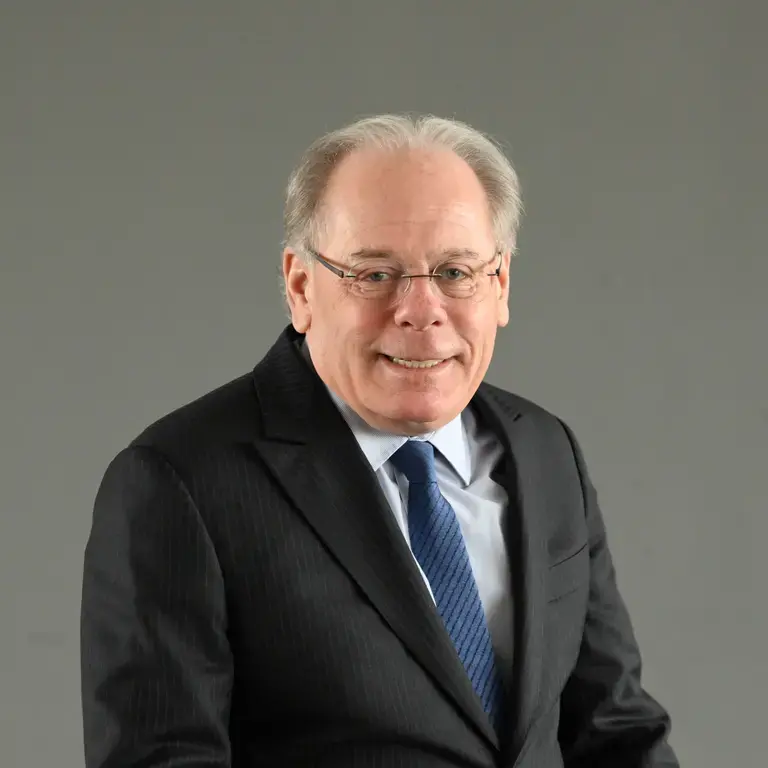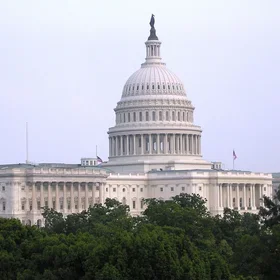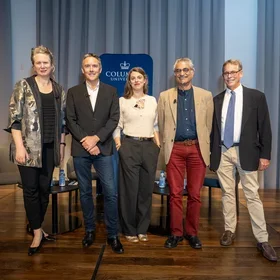By Steven Cohen, Ph.D., Director of the M.S. in Sustainability Management program, School of Professional Studies
As an old year morphs into a new one, like many people, I find myself reflecting back on 2024. It has been a year of conflict, protest, war, politics, and constant change. I am aware of that world and my place within it, but I am also an educator and a student of environmental policy and sustainability management, and I am determined to focus on my mission of building a profession of sustainability managers. I am equally determined to maintain a deep engagement with the people I care about and those who care about me. I don’t dwell on the mistakes and egos of national leaders and politicians; instead, I dwell on the needs and hopes of my students, colleagues, friends, and, most of all, my family. I find certainty and stability in those relationships and in the personal connections that are always at the center of who we are.
We are at the end of the first quarter of the 21st century. It is a century that began in many ways on September 11, 2001. I will never forget the beautiful clear blue sky of that calm late summer morning here in New York City. I will always remember how it was violently punctuated by the televised images of devastation downtown, followed by the white cloud of dust drifting past my window looking south from the offices of Columbia’s School of International and Public Affairs on West 118th Street. Next, I recall the eerie silence I found when I walked on Broadway to check on my daughters’ school, which was followed by the sight and sounds of fighter jets circling Manhattan. The death and pain all too common around the world, then and now, was brought home to my city with fearsome, destructive force. In the weeks that followed, in the face of horror and suffering, I remember a growing sense of determination to rebuild and somehow return to normal. In the uncertain world of 2001, we found certainty and eventually solace in that sense of determination. I know that some of our politicians followed the path of revenge and retribution, but I think that most of us simply wanted to rebuild and restore the world that we lost. It took years, and the restoration was far from perfect, but we did the best we could.
In some ways, we have never returned to the certainty and stability of 9/10/01. I’m afraid we never will. We are searched before we board an airplane, and most office buildings require that visitors present identification and receive a pass to enter. That is now the case with Columbia’s campus. College Walk at the center of our Morningside Campus is lit as always this time of year with beautiful holiday lights, but if you don’t work or go to school here, the closest you can get to see it is to gaze from behind the locked gates on West 116th Street. We’ve gotten used to visible security, and we know that in the modern world, privacy has become a luxury. We live in an observed world. Cameras on light posts, in smartphones, and in drones. Images and videos are available in a relentless loop. This was not the world of the 20th century, but it is the new normal of the 21st.
Nevertheless, here we are in an undeniably festive holiday season. There is a beautiful tree in Rockefeller Center, and the entire city is brightly decorated for the holidays. Harlem’s 125th street is a wonder, as are the many store decorations displayed throughout the city. Huge menorahs have been lit in Brooklyn and Manhattan and will continue to shine for a few more nights. The cold, dark nights of late December have been overcome by the warmth of the holiday lights. That warmth is echoed and radiated by many gatherings of families and friends. It is further magnified by the generosity and kindness of volunteers distributing warm coats and toys to the many people in need.
A new administration in Washington will work to command our attention, and its impact will be far from trivial. I worry about what may happen to my neighbors who were born outside the United States. But government’s reach can only extend so far. And here in the United States, we have many governments and many competing sources of power. Corporations, universities, NGOs, state and local governments, unions, and thousands of largely self-governing communities. The internet and smartphones have magnified images and events. People spend hours and hours sending and receiving messages and images. Communication and information are inexpensive and ubiquitous. We seem to overreact to everything. But as we prepare to bring in 2025, old rituals reassert themselves.
Watching the ball drop in Times Square. Resolving to do something better in the new year. (Gyms will tell you business picks up in January, only to drop back by mid-February.) Traveling far to see family and catch up with old friends. These rituals are common to humanity and take shape in every culture in some form and in some place. It is not surprising that many religions have holidays that involve light during the season when days are short and nights are long. Rituals around planting and harvesting are equally common. We all take solace in the certainty and stability of the calendar, the Earth’s course around the sun and/or the moon’s phases as seen from Earth.
Many people around the world are struggling and suffering as 2024 comes to an end. As we reflect on what we have, let’s also resolve to do whatever small things each of us can do to relieve that suffering. Despite wars, hatred, and poverty, I remain an optimist. In the face of setbacks, I see progress in most of the places I look. On March 31, 1968, Dr. Martin Luther King gave a famous speech at the National Cathedral where he observed that: “We shall overcome because the arc of the moral universe is long but it bends toward justice.” King was not ignoring the pain and reversals he had experienced. In fact, he would only live for five days after his talk at the National Cathedral. But his voice and impact persist in part because his messages retain their currency. They are important, and I think we need to look at how humanity lives in the 21st century and compare it to how we lived in earlier times. I see MLK’s arc every day. Despite the noise of politics and discord, I see a world culture emerging and brought together by the images and information that we share. People in all parts of the world learn about each other and often travel to places they’ve never seen or experienced. As a species, many of us have come to learn how much we share, and that our differences are less important than what we share.
The risks of modern life and modern technology are great—from the possibility of nuclear war to the certainty of climate change. But, as I often say, the human species is ingenious, and we are not suicidal. I am certain that even in this uncertain and unstable world, somehow, we will manage to make 2025 better than 2024. I’m not sure how to measure the improvement, but I’m pretty sure it has something to do with maintaining a sense of hope. It is that hope that brings me to the end of 2024 and, to conclude on a high note, I will once again refer to President John F. Kennedy’s commencement address at American University on June 10, 1963, where he concluded by observing that:
“…in the final analysis, our most basic common link is that we all inhabit this small planet. We all breathe the same air. We all cherish our children's future. And we are all mortal.”
Happy 2025…
Views and opinions expressed here are those of the authors, and do not necessarily reflect the official position of Columbia School of Professional Studies or Columbia University.
About the Program
The Columbia University M.S. in Sustainability Management program offered by the School of Professional Studies in partnership with the Climate School provides students cutting-edge policy and management tools they can use to help public and private organizations and governments address environmental impacts and risks, pollution control, and remediation to achieve sustainability. The program is customized for working professionals and is offered as both a full- and part-time course of study.



